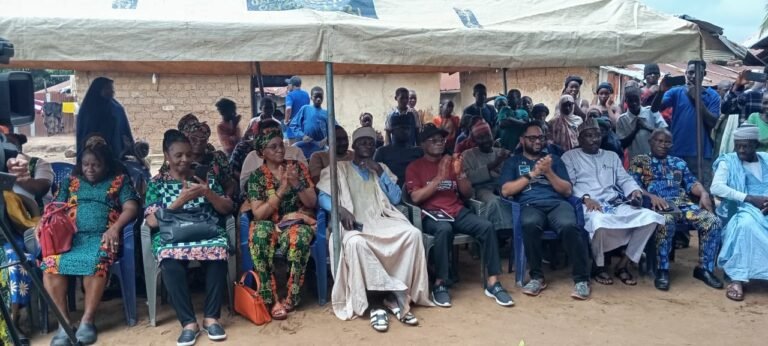The ActionAid Nigeria (AAN) has urged the federal and other levels of governments to uphold their election promises and developmental projects by delivering essential infrastructure and sustainable livelihood support to the nation’s grassroots and rural communities.
The AAN Board made the appeal at the weekend during a working visit to Tungan Ashere community in Jiwa Chiefdom, within the Abuja Municipal Area Council (AMAC) of the Federal Capital Territory (FCT).
The visit which also included board members, general assembly representatives, and development experts, among others, was part of the AAN’s commitment to amplifying citizens’ voices and promoting responsive, people-centred governance, especially for the vulnerable across the country.
The visit highlighted various community-led initiatives supported by ActionAid, particularly in education, agriculture, renewable energy, and digital inclusion, meant to bridge the rural-urban development gap and empower underserved and vulnerable Nigerians.
Chairperson of the AAN board, Ms. Rabi Isma, said rural communities across Nigeria continued to suffer from neglect and required urgent government intervention in key areas such as electricity, schools, health centres, and access roads to thrive and realise their potential.
She said that fulfilling these promises were critical to the delivery of democratic dividends.
“Government officials often erect poles and announce infrastructure projects, but many of these are left abandoned.
“If you promise electricity, install it. Let the community benefit. Governance should not be about photo opportunities but about real action that transforms lives,” Isma said.
She urged leaders to consider the legacy they intend to leave behind, as true leadership is measured by positive and lasting impact.
She also commended the Tungan Ashere residents for sustaining ActionAid’s interventions in the community, including the Information and Communication Technology (ICT) centre, women empowerment initiatives, and agricultural projects.
She said, “I am truly inspired by the community’s resilience, especially the women, their strength, determination, and drive to transform their lives. This is the real spirit of empowerment.”
Isma said that the ICT centre was established by ActionAid in partnership with the Centre for Information Technology and Development (CITAD), and had positively impacted the lives of many young people in the area.
On his part, the ActionAid Nigeria’s country Director, Andrew Mamedu, urged citizens to demand greater accountability from the federal, state, and local governments.
“We must insist on accountability. If leaders are not held accountable, development will continue to elude us,” Mamedu said.
He said that many countries had achieved progress because citizens consistently demanded results from their leaders.
He said, “Even during political campaigns, poor road conditions never stopped politicians from accessing rural communities. So, after elections, communities must engage their leaders to ensure delivery.”
He said that the visit was to assess the impact of ActionAid’s interventions and identify further needs within the community.
“Recent statistics showed that over 70 per cent of people in rural communities in Nigeria live in poverty, hence the need for continued investment and advocacy in such areas,” Mamedu said.
The village head of Tunga Ashere, Mr. Sani Yakubu, commended the ActionAid for providing agricultural support to women and establishing a solar-powered ICT centre with help from the CITAD.
He also expressed appreciation on the feat recorded in the community using the ICT centre, where residents recently connected via video call with partners in the United States, during a live stakeholders workshop.
He said it was a powerful symbol of digital inclusion in a rural setting as the facility has become a digital learning hub for nearby villages.
Yakubu, however, noted the community’s inadequate health and education infrastructure, noting that pupils from Primary 1 to 6 share a single three-classroom block.
He added that classes take turns to avoid disruptions, while they also experience difficulties in getting healthcare as they lack any and had to go far to Zuba for healthcare amidst bad road in the community.

